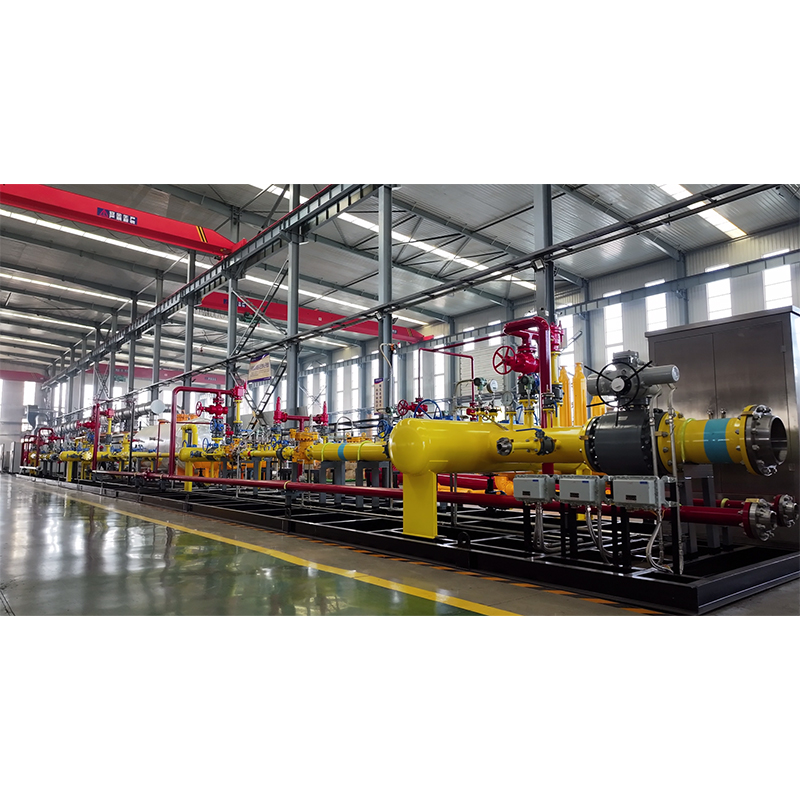
Dec . 04, 2024 16:24
Back to list
gasifier
The Future of Gasification Transforming Waste into Sustainable Energy
In the quest for sustainable energy solutions, gasification has emerged as a powerful technology that promises to transform waste into usable energy. As the world grapples with increasing waste generation and the urgent need for cleaner energy sources, gasification offers a viable alternative that addresses both challenges simultaneously. This article explores the principles of gasification, its benefits, applications, and its potential role in a sustainable future.
At its core, gasification is a thermochemical process that converts organic or carbon-based materials into a gaseous product known as syngas (synthetic gas). This process occurs in a controlled environment with limited oxygen, allowing for the breakdown of materials at high temperatures. Typically, feedstocks can include biomass, municipal solid waste, coal, or petroleum residues. The resultant syngas primarily comprises hydrogen, carbon monoxide, and small amounts of methane, which can then be used for various applications.
The Future of Gasification Transforming Waste into Sustainable Energy
Moreover, gasification has a smaller carbon footprint compared to traditional fossil fuel consumption. The syngas produced can be used to generate electricity, produce hydrogen fuel, or serve as a feedstock for creating chemicals and synthetic fuels. This versatility ensures that gasification can play a significant role in transitioning from fossil fuels to renewable energy sources. Additionally, when biomass is used as the feedstock, the process is often considered carbon neutral since the CO2 released during energy production is offset by the CO2 absorbed by the plants during their growth.
gasifier

The applications of gasification are diverse and continue to expand as technology advances. In the energy sector, gasification is being integrated into power plants to create cleaner electricity. For instance, integrated gasification combined cycle (IGCC) systems convert syngas into electricity more efficiently than conventional coal-based power plants. This process also captures carbon emissions, making it an attractive option for reducing greenhouse gas emissions.
In the realm of transportation, syngas can be converted into liquid fuels through various chemical processes, such as Fischer-Tropsch synthesis. This conversion could lead to the production of renewable diesel or jet fuel, paving the way for a more sustainable transportation sector that relies less on crude oil. The potential for using waste-derived fuels could dramatically lower costs and environmental impacts, providing a sustainable alternative to traditional fossil fuels.
Despite its numerous advantages, the gasification process is not without challenges. The initial capital investment for gasification facilities can be high, and the technology requires careful management and operation to ensure efficiency and safety. However, as research progresses and the demand for sustainable energy solutions grows, these challenges are likely to diminish. Industry experts predict that with continued innovation and economies of scale, gasification will become a more accessible and prominent energy solution.
Governments and private sectors play a crucial role in promoting gasification technology. Policy frameworks that incentivize the use of renewable energy and waste management solutions can accelerate the adoption of gasification systems. Public-private partnerships can also drive investment in infrastructure and development, ultimately leading to greener alternatives for energy production.
In conclusion, gasification stands at the forefront of the global shift toward sustainable energy and effective waste management. As the world seeks innovative solutions to combat climate change and reduce reliance on fossil fuels, gasification presents a dual solution—a method to convert waste into valuable energy. By harnessing this technology, we can not only address the pressing issue of waste management but also contribute significantly to a sustainable energy future. Embracing and investing in gasification could very well be a crucial step toward a cleaner, more sustainable world for generations to come.
Next:
Latest news
-
Safety Valve Spring-Loaded Design Overpressure ProtectionNewsJul.25,2025
-
Precision Voltage Regulator AC5 Accuracy Grade PerformanceNewsJul.25,2025
-
Natural Gas Pressure Regulating Skid Industrial Pipeline ApplicationsNewsJul.25,2025
-
Natural Gas Filter Stainless Steel Mesh Element DesignNewsJul.25,2025
-
Gas Pressure Regulator Valve Direct-Acting Spring-Loaded DesignNewsJul.25,2025
-
Decompression Equipment Multi-Stage Heat Exchange System DesignNewsJul.25,2025

